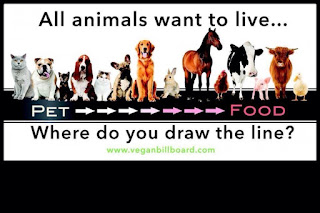Women in the Pig Business
The pig
farming community has undergone a recent change in leadership in the past five to
ten years. According to the USDA agricultural census published in 2014, the
percentage of female pig farmers is on the rise, seeing a one percent increase
between 2007 and 2012 (USDA Table 2). Females have been on farms from the very
beginning, but according to Lexi Marek, a student at Iowa State University studying
agricultural administration, the role of female hog farmers is changing
rapidly. Marek states that women aren’t only farmhands now, “they are starting
to build and own these barns. They are now major stakeholders” (Marek par. 2). So
why is that women are trying to get their hands into the pork market?
The main reason is that the animals are much smaller and
easier to handle than bigger meat supplies such as cattle. Cheryl Day, a writer
for nationalhogfarmer.com claims that Cattle are difficult to maneuver, but
hogs, especially at a younger age, are much smaller and easier to move. In
addition to the small crop being a main factor in gender farming shifts, Day
also claims that the natural nurturing tendencies of a women make hog farming
the perfect fit for women (Day, par. 4). They have an ability to not only make
sure the farrowing unit (essentially a pig maternity ward) is taken care of
properly, but they also have a mentality of making sure that everyone who works
beneath them is well taken care of. The third and final reason that Day states
for the change in leaderships is that women have natural leadership qualities
that give them an ability to stay on the top of their game.
Ultimately, the shift in the hog market should turn out to beneficial
for both sides of the business. Not only will women have a greater capacity to
raise a stronger, more emotionally healthy set of livestock, but they also
bring new business insights and ideas to the table. This will indefinitely
bring great yields in crop production and hopefully a larger amounts of farms
that are operating throughout the United States.
“2012 Census Highlights.” USDA - NASS, Census of Agriculture - Publications - 2012 - Highlights - Hog and Pig Farming, June 2014, www.agcensus.usda.gov/Publications/2012/Online_Resources/Highlights/Hog_and_Pig_Farming/#producer_characteristics.
Day, Cheryl. “Why a Career in Pigs Is Good Fit for Women.” National Hog Farmer, 23 Oct. 2017, www.nationalhogfarmer.com/business/why-career-pigs-good-fit-women.
Marek, Lexi. “The Changing Role Of Women Pig Farmers.” Pork Cares, 29 Feb. 2016, www.porkcares.org/the-changing-role-of-women-pig-farmers/.
“2012 Census Highlights.” USDA - NASS, Census of Agriculture - Publications - 2012 - Highlights - Hog and Pig Farming, June 2014, www.agcensus.usda.gov/Publications/2012/Online_Resources/Highlights/Hog_and_Pig_Farming/#producer_characteristics.
Day, Cheryl. “Why a Career in Pigs Is Good Fit for Women.” National Hog Farmer, 23 Oct. 2017, www.nationalhogfarmer.com/business/why-career-pigs-good-fit-women.
Marek, Lexi. “The Changing Role Of Women Pig Farmers.” Pork Cares, 29 Feb. 2016, www.porkcares.org/the-changing-role-of-women-pig-farmers/.

Comments
Post a Comment